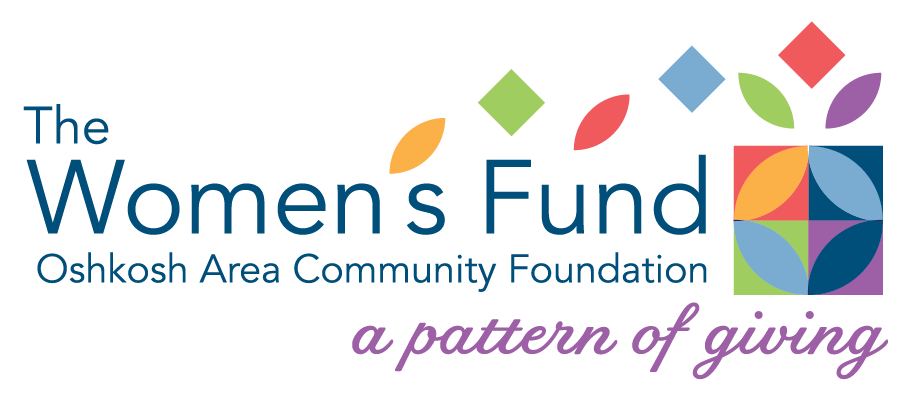
how to help

all the ways to leave your legacy
You have many options for contributing to the Women’s Fund. And we can help reduce taxes by tailoring your gift to your financial situation.
Appreciated securities (stocks)
Gifts of appreciated securities or stock save income tax and avoid the capital gains tax you would pay if you sold stock yourself. How does gifting stock affect taxes? For most donors, the full fair-market value of publicly traded stocks and bonds may be deducted from income tax purposed up to 30% of adjusted gross income with a five-year carryover. Review the actual impact of this gift with your tax advisor.
Cash gifts
The fastest and most flexible way to contribute to the Women’s Fund is with a cash gift. You can contribute cash, write a check or make a donation with your credit card. Gifts are tax-deductible, to the full extent allowed by law.
Real Estate
We welcome gifts of real estate that are readily marketable and free of environmental or other issues.

Life Estates
Life estates entail donating the remainder interest in a home or farm. You and your spouse can continue to live in the residence for life, while obtaining a generous current income tax deduction. Vacation homes may also be donated. On termination of your interest(s), the Women’ Fund will sell the property and establish a charitable fund with the proceeds.
Life Insurance
Gifts of life insurance are an increasingly popular way to give. They allow you to make relatively small yearly, tax-deductible contributions to leverage a substantial fund that will pass to the Women’s Fund upon your death.
How do gifts of life insurance work?
The process is simple. You take out an insurance policy on yourself, vesting all ownership rights in the policy to the Women’s Fund, irrevocably naming the Women’s Fund as the beneficiary of the proceeds. Each year you pay the annual premium, which is fully deductible as a charitable contribution. Upon your death, the proceeds of the policy pass to the Women’s Fund, free of estate taxes.
Charitable lead trusts
Charitable lead trusts reverse the concept of the more frequently used charitable remainder trust. Assets are transferred into a trust for a designated number of years. Annual payments are made to a charity of your choice for those years. Upon death, the assets are paid to named beneficiaries.
How does gifting a lead trust affect taxes?
For donors with larger estates, lead trusts offer an attractive way to make immediate charitable gifts in combination with transfers of assets to beneficiaries at substantially reduced gift and estate taxes.

charitable gift annuities
Charitable gift annuities are a contract between you and the Women’s Fund. They give you a way to make a gift and still receive income for you or others. In return for your donation, you receive a yearly fixed payment, paid until your death, when the balance of the contract is donated to the Women’s Fund in a fund designated by you, the donor. The size of the annual payment depends on the annuity rate, the value of the contribution, the number of annuitants, and your age.
How does gifting annuity affect taxes?
You receive a charitable deduction, and a portion of the annual payments may be tax free. To receive your complimentary charitable gift annuity calculation, call (920) 426.3993.
Charitable Remainder Trusts
Charitable remainder trusts are such a beneficial life income plan that some financial advisors even recommend them to clients with no previous interest in charity. It is best suited for gifts over $50,000.
How do charitable remainder trusts work?
You create a separate trust. In the trust, you reserve a life interest for yourself. You can also create a succeeding life interest for a survivor beneficiary — often a spouse, parent, sibling, relative or friend. In lieu of a life interest, the trust can provide the named beneficiary income for a certain number of years. Upon the death of the beneficiary, or at the end of the proscribed number of years, the charitable remainder trust terminates. The principal, which has often appreciated in value, passes into a perpetual charitable fund in the Women’s Fund. That fund can bear your name or any name you choose. It is also possible for another charity or charities to share in this final disposition.
Bequests
Bequests are the simplest way for many donors to make significant, lasting gifts to their community. After meeting the needs of spouses, children and other loved ones, many individuals find it fulfilling to know a portion of their resources will go toward a common good. When you are preparing a will, ask yourself if there are charitable interests you would like to support.
How do bequests affect taxes?
A bequest can significantly reduce the federal estate tax and the inheritance tax due at the donor’s death. A bequest to create a named fund through the Women’s Fund qualifies for an unlimited charitable deduction and combined federal and state taxes can exceed 67% on large estates. That’s why a bequest can offer dramatic tax savings. And it is why many people can make significant gifts at a relatively small cost to their heirs. Alternatively, you can make the Women’s Fund a contingent beneficiary in the event other beneficiaries die before you.
If you are ready to financially support the Women’s Fund, please give us a call to help you start your journey.
920-426-3993 or email Karlene@OshkoshAreaCF.org
